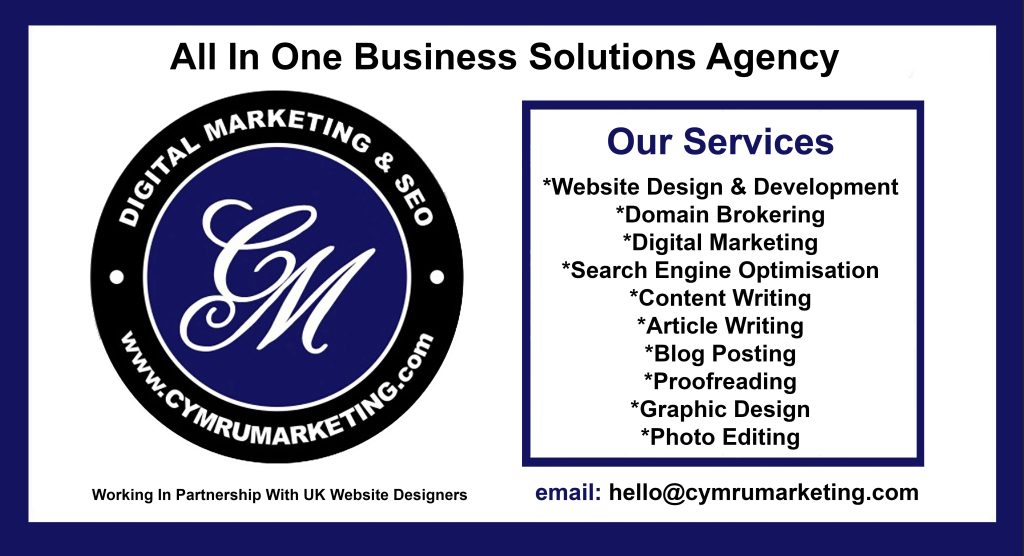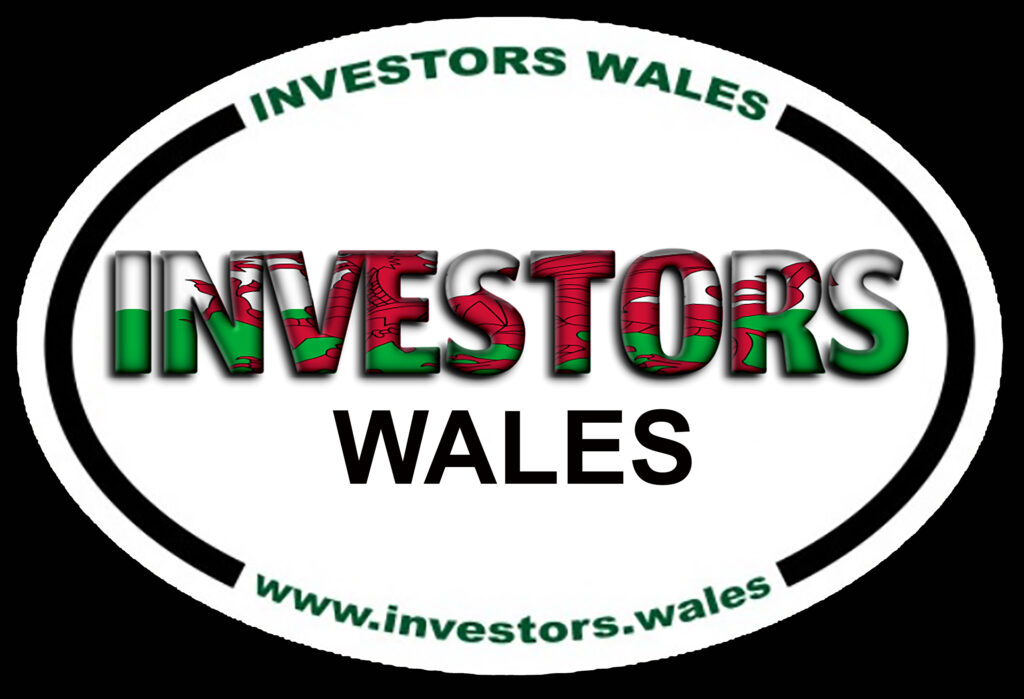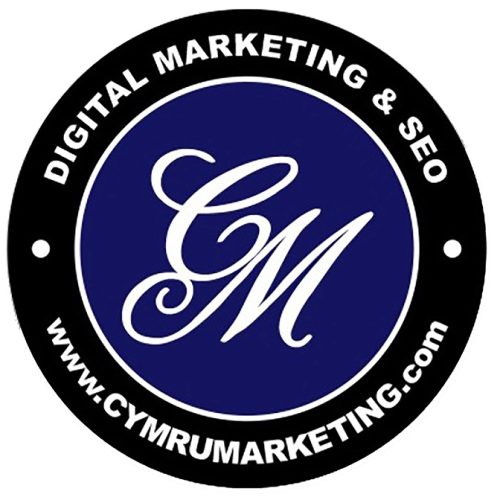
How to make your business a credible source
Building Credibility: How to Make Your Business a Trustworthy Source
A credible business is not only trusted by its customers and clients but also recognized as a reliable source of information and expertise within its industry. Building credibility takes time and effort, but the rewards are substantial.
- Deliver High-Quality Products or Services: The foundation of credibility lies in consistently delivering high-quality products or services that meet or exceed customer expectations. This requires a relentless focus on excellence, attention to detail, and a commitment to continuous improvement. By consistently providing value to your customers, you establish your business as a reliable and trustworthy source.
- Establish Thought Leadership: Positioning your business as a thought leader in your industry is crucial for credibility. Share your knowledge and expertise through various channels such as blogs, white papers, case studies, and speaking engagements. Offer unique insights, actionable advice, and innovative solutions to the challenges your target audience faces. This positions your business as an authority, demonstrating that you are at the forefront of industry trends and developments.
- Cultivate a Strong Online Presence: In today’s digital age, having a strong online presence is vital for establishing credibility. Develop a professional website that showcases your expertise, provides valuable content, and highlights your track record of success. Engage in content marketing by consistently producing relevant and informative articles, videos, or podcasts that cater to your target audience’s needs. Actively participate in social media platforms, engage in meaningful conversations, and respond promptly to inquiries or feedback. This demonstrates your accessibility, expertise, and commitment to building relationships with your audience.
- Leverage Testimonials and Reviews: Customer testimonials and reviews are powerful tools for establishing credibility. Encourage satisfied customers to provide testimonials that highlight the positive experiences they have had with your business. Display these testimonials prominently on your website, social media profiles, and other marketing materials. Additionally, actively monitor and respond to online reviews, whether they are positive or negative. Addressing concerns or issues publicly showcases your commitment to customer satisfaction and transparency.
- Build Partnerships and Collaborations: Forming strategic partnerships and collaborations with other credible businesses or industry influencers can significantly boost your own credibility. By aligning yourself with respected organizations or individuals, you tap into their existing credibility and gain exposure to a wider audience. Seek opportunities to collaborate on projects, co-author content, or participate in joint events. These partnerships demonstrate that your business is valued by others in the industry.
- Provide Exceptional Customer Service: Exceptional customer service is an integral part of building credibility. Respond promptly to customer inquiries or concerns, and go above and beyond to resolve issues. Train your staff to embody your company’s values and provide a positive customer experience at every touchpoint. A reputation for excellent customer service fosters trust and confidence in your business.
What is credibility
Understanding Credibility: The Cornerstone of Trust and Reliability
Credibility plays a pivotal role in shaping our decisions, influencing our perceptions, and determining our trust in various domains of life. Whether it’s assessing the reliability of news sources, evaluating the expertise of professionals, or establishing trust in personal relationships, credibility forms the bedrock upon which trust and authenticity are built. In this article, we delve into the essence of credibility, exploring its definition, key attributes, and the importance it holds in various aspects of our lives.
Defining Credibility: Credibility refers to the quality or characteristic of being trusted, believable, and reliable. It encompasses the perception that an individual, organization, or information source is competent, honest, and can be relied upon. Credibility extends beyond mere reputation; it is a multifaceted construct that involves expertise, integrity, consistency, and transparency.
Key Attributes of Credibility:
- Expertise: One of the fundamental elements of credibility is expertise. It refers to the possession of knowledge, skills, experience, or qualifications in a particular field. When individuals or sources demonstrate a high level of expertise, they are more likely to be considered credible. Expertise lends credibility by instilling confidence in the abilities and knowledge of the person or entity.
- Integrity: Integrity is the moral and ethical aspect of credibility. It entails adhering to a set of values, being honest, and acting with transparency and fairness. Integrity is crucial in establishing and maintaining credibility, as it ensures that the information or actions provided are truthful, reliable, and consistent.
- Objectivity: Credible individuals and sources strive to present information objectively, free from bias or personal agendas. Objectivity involves providing balanced viewpoints, considering multiple perspectives, and being open to critical analysis. Objectivity adds weight to credibility by fostering an environment of trust and fairness.
- Consistency: Consistency refers to the ability to maintain reliability over time. Credible sources exhibit consistency in their actions, statements, and behavior. They align their words with their deeds, ensuring that their reliability remains unwavering. Consistency enhances credibility by demonstrating dependability and predictability.
Importance of Credibility:
- Trust and Reliability: Credibility is the foundation of trust in various aspects of life. Whether it’s trusting a news outlet to provide accurate information, relying on a professional’s expertise, or building strong relationships, credibility is the linchpin that fosters trust and reliability.
- Informed Decision-making: Credible information sources enable individuals to make informed decisions. When presented with credible data, individuals can assess the reliability and validity of the information, empowering them to make well-informed choices in personal, professional, and societal contexts.
- Reputation and Influence: Credibility plays a vital role in shaping an individual’s or organization’s reputation and influence. Credible entities are more likely to attract positive attention, build a strong reputation, and exert a greater influence on others. Credibility acts as a currency, amplifying the impact and reach of an individual or organization.
- Collaboration and Cooperation: Credibility is crucial in fostering collaboration and cooperation among individuals and groups. When parties perceive each other as credible, they are more inclined to work together, share resources, and pursue common goals. Credibility facilitates harmonious relationships and fruitful collaborations.
- Enhanced Influence and Persuasion: Credibility gives you the power to influence and persuade your audience effectively. When you’ve built a reputation for being credible, people are more inclined to listen to your opinions, consider your recommendations, and act upon them. Whether you’re promoting a product, sharing insights, or advocating for a cause, your credibility can amplify the impact of your message and encourage others to take action.
- Differentiation and Competitive Advantage: In a crowded marketplace, credibility sets you apart from the competition. When customers perceive you as credible, they are more likely to choose your products or services over others. Credibility acts as a differentiating factor, giving you a competitive edge. By building and maintaining a solid reputation for credibility, you establish yourself as a go-to resource, making it harder for competitors to replicate your success.
- Long-Term Relationships: Building credibility is not just about the immediate benefits of gaining trust or making a sale; it’s about fostering long-term relationships with your audience. Credibility builds a sense of loyalty and creates a connection that goes beyond a transactional level. When people trust and believe in you, they are more likely to become repeat customers, recommend your business or work, and become advocates for your brand.
- Increased Opportunities: Credibility opens doors to new opportunities. As you establish yourself as a credible individual or your business gains a solid reputation, you become more visible and attract collaborations, partnerships, and speaking engagements. Other industry experts and influential figures are more likely to take notice and reach out to you. The opportunities that stem from credibility can lead to personal and professional growth, expanding your network and horizons.
Strategies to Build Credibility:
- Consistency: Consistency is key when it comes to building credibility. Consistently provide high-quality content, deliver on your promises, and maintain ethical standards. Demonstrating reliability and consistently delivering value will reinforce your credibility over time.
- Expertise and Knowledge: Showcase your expertise and knowledge in your field. Share valuable insights, provide accurate information, and stay updated with the latest trends and developments. Continuously educate yourself to stay ahead and position yourself as a trusted authority.
- Authenticity and Transparency: Be genuine and authentic in your interactions. Transparency builds trust and credibility. Admit mistakes when they occur, be open about your processes, and address any concerns or feedback promptly. Authenticity resonates with audiences and creates a deeper connection.
- Testimonials and Social Proof: Collect testimonials and positive reviews from satisfied customers or clients. Social proof in the form of testimonials, case studies, and endorsements can significantly boost your credibility. Display them prominently on your website or share them on social media to demonstrate the positive experiences others have had with your offerings.
Actively engage with your audience and build relationships. Respond to comments and messages, participate in relevant discussions, and foster a sense of community. Engaging authentically with your audience helps establish trust and credibility.
Building credibility with your audience is essential for long-term success. Trust and reliability are the foundations of strong relationships, and credibility paves the way for increased influence, differentiation, and opportunities. By consistently demonstrating expertise, authenticity, and transparency, while actively engaging with your audience, you can establish and maintain the credibility needed to thrive in today’s competitive landscape.
Credibility stands as a fundamental pillar in our complex and interconnected world. It defines the trustworthiness, reliability, and believability of individuals, organizations, and information sources. By embodying expertise, integrity, objectivity, and consistency, credibility forms the bedrock upon which trust, informed decision-making, reputation, and collaboration is built. In our pursuit of knowledge, growth, and meaningful connections, understanding and recognizing credibility is essential for navigating an increasingly complex and information-driven society.
What is a CRAAP Test
Evaluating Information: Understanding the CRAAP Test
With the rise of the internet and social media, anyone can publish information, making it challenging to determine the credibility and reliability of sources. To navigate this sea of information effectively, it is crucial to employ critical evaluation methods. One such method is the CRAAP test, which provides a framework to assess the quality of information sources.
Understanding the CRAAP Test: The CRAAP test is an acronym that stands for Currency, Relevance, Authority, Accuracy, and Purpose. It was developed by librarians at the Meriam Library at California State University, Chico, to assist users in evaluating the quality of information sources, particularly for academic research purposes. Let’s delve into each element of the CRAAP test:
- Currency: Currency refers to the timeliness and relevance of the information. When assessing a source, ask yourself when it was published or last updated. Depending on your topic or subject, the currency requirement may vary. For example, scientific research may require the latest information, while historical topics might benefit from older sources. Ensure that the information aligns with your needs and the context in which you plan to use it.
- Relevance: Relevance focuses on the significance of the information to your research or purpose. Consider whether the source provides the necessary depth and breadth of information for your topic. Does it address your research questions or objectives? Evaluating relevance helps ensure that the source aligns with your specific needs and contributes meaningfully to your work.
- Authority: Authority examines the expertise and credibility of the author or publisher of the information. Consider the qualifications, credentials, or affiliations of the author. Look for indications that the author has relevant expertise or experience in the subject matter. Additionally, assess the reputation and reliability of the publisher or the platform hosting the information. Recognized academic institutions, established publishers, and reputable organizations tend to produce more trustworthy content.
- Accuracy: Accuracy assesses the reliability, truthfulness, and correctness of the information. Verify the claims and statements made within the source by cross-referencing them with other reliable sources. Pay attention to any logical inconsistencies, biases, or unsupported claims that may indicate a lack of accuracy. Look for evidence, citations, and references that support the information presented. A well-supported and factually accurate source is more likely to be trustworthy.
- Purpose: Purpose examines the intentions or motives behind the creation of the information source. Consider whether the content is objective, biased, or influenced by a particular agenda. Some sources may have a clear purpose, such as persuading, informing, entertaining, or promoting. Understanding the purpose helps you evaluate whether the source aligns with your own research goals and whether it presents a balanced perspective.
- Applying the CRAAP Test: To apply the CRAAP test effectively, consider the specific requirements of your research or information needs. By critically evaluating sources using the five criteria, you can filter out unreliable or biased information and focus on trustworthy and relevant sources. Remember that the CRAAP test is not a strict checklist but rather a guide to help you make informed decisions about the sources you choose to rely on.
The CRAAP test provides a valuable framework for assessing the currency, relevance, authority, accuracy, and purpose of information sources. By applying this test, we can make more informed decisions, avoid misinformation, and ensure the credibility of the sources we use for research or other purposes. So, the next time you encounter information, remember to give it the CRAAP test to separate the wheat from the chaff.
How to recognize a reliable source
A Guide to Navigating Information in the Digital Age
In today’s information-rich world, it has become increasingly important to distinguish reliable sources from misinformation and biased content. With the proliferation of online platforms and social media, it can be challenging to discern what sources to trust. However, with the right tools and critical thinking skills, anyone can become adept at recognizing reliable sources.
- Authority and Expertise: A reliable source should demonstrate authority and expertise on the topic at hand. Look for authors or organizations with credentials, experience, or professional affiliations related to the subject matter. Academic institutions, reputable news outlets, government agencies, and established research organizations often have experts who produce reliable and well-sourced content.
- Accuracy and Verifiability: Reliable sources prioritize accuracy and provide verifiable information. They cite their sources, enabling readers to fact-check the claims and verify the data independently. High-quality sources rely on evidence-based research, peer-reviewed studies, and primary sources. Beware of sources that rely solely on personal anecdotes, unsubstantiated claims, or lack citations altogether.
- Objectivity and Bias: No source can claim complete objectivity, as biases may exist even unintentionally. However, reliable sources make an effort to present information fairly and objectively. They provide a balanced view of various perspectives and disclose any potential conflicts of interest. Watch out for overtly biased sources that excessively promote a particular agenda or exhibit a one-sided narrative without considering alternative viewpoints.
- Publication Standards and Peer Review: Reputable sources adhere to high publication standards. Academic journals, scientific publications, and peer-reviewed articles undergo rigorous review processes involving experts in the field. These processes help ensure the accuracy, credibility, and integrity of the information presented. While not all reliable sources undergo peer review, it remains an essential indicator of quality and expertise.
- Consistency and Cross-Referencing: Reliable sources strive for consistency in their content. They provide information that aligns with established facts, known research, and existing knowledge on the subject. It is crucial to cross-reference information across multiple sources to identify patterns, commonalities, and discrepancies. If a claim is only supported by a single obscure source, it is advisable to seek additional confirmation from other trusted sources.
- Transparency and Accountability: A reliable source is transparent about its methodology, data sources, and potential conflicts of interest. It provides clear information about its authors, their qualifications, and affiliations. Trustworthy sources are also open to corrections and acknowledge and rectify errors promptly. If a source lacks transparency, conceals its authors’ identities, or fails to address legitimate concerns or criticisms, it may be a warning sign of unreliability.
Recognizing reliable sources is an essential step in ensuring the accuracy, credibility, and integrity of the information we consume. By considering factors such as authority, accuracy, objectivity, publication standards, consistency, and transparency, we can become more discerning consumers of information. Remember to question, verify, and seek multiple perspectives when evaluating sources to make informed decisions and contribute to a well-informed society.
How to find out if the source is being used by other people
Conducting research or using a source for academic or professional purposes, it is essential to ascertain whether the same source is being used by others. Verifying the uniqueness and originality of a source can help us avoid redundancy, ensure accurate information, and contribute to the development of new ideas.
- Conduct a thorough literature review: The first step in evaluating the uniqueness of a source is to conduct a comprehensive literature review. Search through academic journals, books, conference proceedings, and other scholarly sources to determine if the topic or content covered by the source has been previously addressed. Pay attention to recent publications, as they are more likely to reflect the most up-to-date research.
- Utilize specialized databases and search engines: Utilize specialized databases and search engines that provide access to a vast array of sources. Academic databases such as JSTOR, Google Scholar, Scopus, and PubMed allow users to search for specific keywords, authors, or topics and display relevant published works. By using these resources, you can get an overview of how extensively a particular source has been referenced or cited by other researchers.
- Check citations and references: When reviewing a source, examine its references or bibliography section. High-quality sources often cite other reputable works, indicating that the author has conducted a thorough review of the literature. Analyze the cited sources to determine if they are relevant and if they overlap with the content of the source you are examining. If multiple sources consistently cite the same reference, it suggests that the material is widely used and influential.
- Cross-check with plagiarism detection tools: Plagiarism detection tools can be useful in identifying similarities between your source and other existing works. While these tools are commonly employed to detect plagiarism in student papers or professional documents, they can also be leveraged to identify if a source has been extensively used by others. Tools such as Turnitin, Grammarly, and Copyscape compare your source against a vast database of published works to highlight any potential matches or overlaps.
- Engage in discussions and networking: Participating in academic or professional discussions, conferences, seminars, or online forums can provide valuable insights into the existing knowledge base. Engage with experts in your field of interest and discuss the source in question. If other researchers or professionals are familiar with the source or have used it in their work, they can provide you with insights into its impact, relevance, and popularity within the community.
- Consult subject matter experts: Consulting subject matter experts or mentors who possess expertise in the area you are exploring can help you gauge the familiarity of a particular source among professionals. Experts can provide valuable guidance and offer their perspective on whether the source is widely used, considered seminal, or has been surpassed by more recent and comprehensive research.
Determining if a source is being used by others is crucial for avoiding redundancy, maintaining accuracy, and contributing to the advancement of knowledge. By conducting a thorough literature review, utilizing specialized databases, checking citations and references, using plagiarism detection tools, engaging in discussions and networking, and consulting subject matter experts, researchers and professionals can effectively evaluate the uniqueness and originality of a source. By following these strategies, you can ensure that your work is built upon a solid foundation and make a meaningful contribution to your field.
Conclusion & Editorial Code
Building credibility is a continuous effort that requires a long-term commitment to excellence, integrity, and customer satisfaction. By consistently delivering high-quality products or services, establishing thought leadership, cultivating a strong online presence, leveraging testimonials and reviews, building partnerships, and providing exceptional customer service, your business can become a trusted and credible source within your industry. Credibility not only enhances your reputation but also opens doors to new opportunities and strengthens your competitive advantage in the market.
Upholding Ethical Standards: The Significance of an Editorial Code
In the realm of journalism and media, maintaining credibility and adhering to ethical standards is paramount. An editorial code serves as a guiding framework, ensuring that journalists and editors operate with integrity, objectivity, and fairness. By establishing a set of principles and guidelines, an editorial code upholds the profession’s fundamental values, fosters public trust, and strengthens the quality of journalism. In this article, we will explore the significance of an editorial code and its role in shaping responsible journalism.
Defining the Editorial Code:
An editorial code, also known as a code of ethics or code of conduct, lays out the ethical principles that journalists and editors should follow in their work. It provides a compass to navigate complex situations, dilemmas, and potential conflicts of interest. The code serves as a reminder of the journalist’s responsibility to the public, emphasizing truth, accuracy, accountability, and transparency.
Core Principles of an Editorial Code:
- Truth and Accuracy: The foundation of any journalistic endeavor is the commitment to reporting the truth. An editorial code emphasizes the importance of verifying facts, corroborating information from multiple sources, and maintaining accuracy in all aspects of reporting. Journalists are urged to be diligent in fact-checking and to correct any errors promptly.
- Independence and Objectivity: An editorial code upholds the principle of independence, ensuring that journalists are free from undue influence or bias. Journalists must strive to present information in a fair, balanced, and objective manner, avoiding conflicts of interest that could compromise their integrity. Personal beliefs, political affiliations, or financial interests should not overshadow the pursuit of unbiased reporting.
- Privacy and Sensitivity: Journalists have a responsibility to respect individual privacy rights and exercise sensitivity when reporting on personal matters. The editorial code highlights the need to obtain consent when conducting interviews, protecting sources’ identities, and avoiding unnecessary harm or intrusion into people’s lives.
- Accountability and Corrections: Journalists are accountable for their work. An editorial code promotes transparency and encourages journalists to take responsibility for the accuracy and fairness of their reporting. If mistakes occur, corrections should be made promptly and prominently to maintain the public’s trust.
- Diversity and Inclusion: A crucial aspect of an editorial code is the commitment to diversity and inclusion. Journalists should strive to represent the diverse voices and perspectives of the communities they serve, avoiding stereotypes and discriminatory practices. By reflecting the plurality of society, journalists contribute to a more informed and inclusive public discourse.
Benefits of an Editorial Code:
- Trust and Credibility: An editorial code plays a vital role in establishing and maintaining public trust in journalism. When journalists consistently adhere to ethical standards, it enhances the credibility of their reporting, fostering a stronger bond with the audience.
- Professional Integrity: A well-defined editorial code reinforces the professional integrity of journalists and editors. It serves as a professional compass, guiding their decision-making process and ensuring that ethical considerations are prioritized over sensationalism or personal interests.
- Ethical Decision Making: An editorial code provides journalists with a framework for navigating ethical dilemmas and challenging situations. By consulting the code, journalists can make informed decisions and uphold their commitment to ethical practices.
- Industry Standards: An editorial code contributes to the establishment of industry-wide standards, fostering a culture of ethical journalism. It encourages news organizations and media outlets to adopt similar principles and hold themselves accountable to the highest ethical standards.
Conclusion:
By emphasizing truth, accuracy, independence, and accountability, it serves as a guiding compass for journalists and editors. A robust editorial code enhances public trust, strengthens the credibility of news organizations, and ultimately ensures that the profession fulfills its democratic role in providing accurate, unbiased, and responsible information to the public.
Contact Us
ADVERTISEMENT

#editorialcode #craaptest #trustworthiness #trust #reliability #credibility #authority #expertise #crossreferencing #research #citations #referencing #discussions #networking #thoughtleadership #onlinepresence #accuracy
















